When it comes to health, they say you are what you eat. And when it comes to knowledge, you are what you read.
If you’re interested in the idea of investing in the stock market (and succeeding at it) then these are the best investing books for beginners:
- Infinity Investing by Toby Mathis
- The Everything Guide to Investing in Your 20s and 30s by Joe Duarte
- The Intelligent Investor by Benjamin Graham
- Broke Millennial Takes on Investing by Erin Lowry
- Everyday Millionaires by Chris Hogan
- The Richest Man in Babylon by George Clason
- The Little Book of Common Sense Investing by John C. Bogle
- Rich Dad, Poor Dad by Robert Kiyosaki
- I Will Teach You to Be Rich by Ramit Sethi
- Financial Freedom with Real Estate Investing by Michael Blank
- Rental Property Investing by Brandon Turner
You’ve probably heard of Warren Buffett. You’ve probably heard that he’s built an enormous amount of wealth in the stock market.
You may know that he enjoys a daily dose of McDonald’s and drinks lots of Coca-Cola, but did you know that he attributes much of his investing knowledge and business acumen to the books he’s read?
That’s great news for inspiring investors. It means you don’t need a crystal ball or an astronomical IQ to succeed at investing. You just need to educate yourself, and the easiest way to do that is reading.
Of course, even something as simple as consistently reading is easier said than done. But perhaps the call of monetary success in the stock market or the cash flow generated by a portfolio of rental properties will spur you on to stay consistent.
Invest in Education to Invest in Your Financial Future
Try committing to an easy 20-30 minutes of daily self-education time with some of the great stock market books we’ll outline below. These books are written by financial experts who have actually seen success making money on Wall Street, and they have some wisdom to impart to their readers.
Of course, there is tons of content on the internet. There are videos made by everyone from experienced gurus to vlogging investors still on their own financial journey—blog articles, ebooks, podcasts, and more.
The information overload might make you feel paralyzed! That’s why books remain a great way to learn about any topic. Whether you’re reading them off an ebook device like a Kindle or holding a hard copy in your hand, the cover-to-cover boundary creates a zoned off space where you can glean financial wisdom from a focused source, all distractions aside.
Keep in mind that there are many different types of investments, but by and large, most individuals who have reached a place of wealth have done so through investing in the stock market or real estate.
That said, many of these books focus on more traditional ways of building wealth, such as piggybacking off Wall Street or building a portfolio of secure assets, like landed rental properties. This is an important idea to keep in mind as you move through your investing life, because many times a flash-in-the-pan hot stock or IPO will distract you. As these books will show, your best bets are to stay consistent, dedicated, and actively investing in your most important asset: your own mind, and its power to deliver great returns.
Best Investing Books for Beginners
1. Infinity Investing by Toby Mathis
This book is subtitled How the Rich Get Richer, and How You Can Do the Same. Within its pages, you’ll see how numerous individuals have leveraged long term strategies that have led them to enjoy financial independence.
One of the biggest reasons people shy away from learning about the stock market or investing is that the principles and jargon are intimidating, and it keeps them away from diving in.
In Infinity Investing, Toby Mathis cuts through some of the unnecessary complications (like complex formulas) and money-related mystique (such as lengthy philosophical diatribes on economics) to present readers a simple process.
Mathis is a gifted storyteller, which makes the book engaging, entertaining, and ultimately digestible as readers move through different true stories about real-world investors that he has worked with, learning the secrets of their success and passing them along to readers just like you.
Download a free chapter to start learning about investing today!
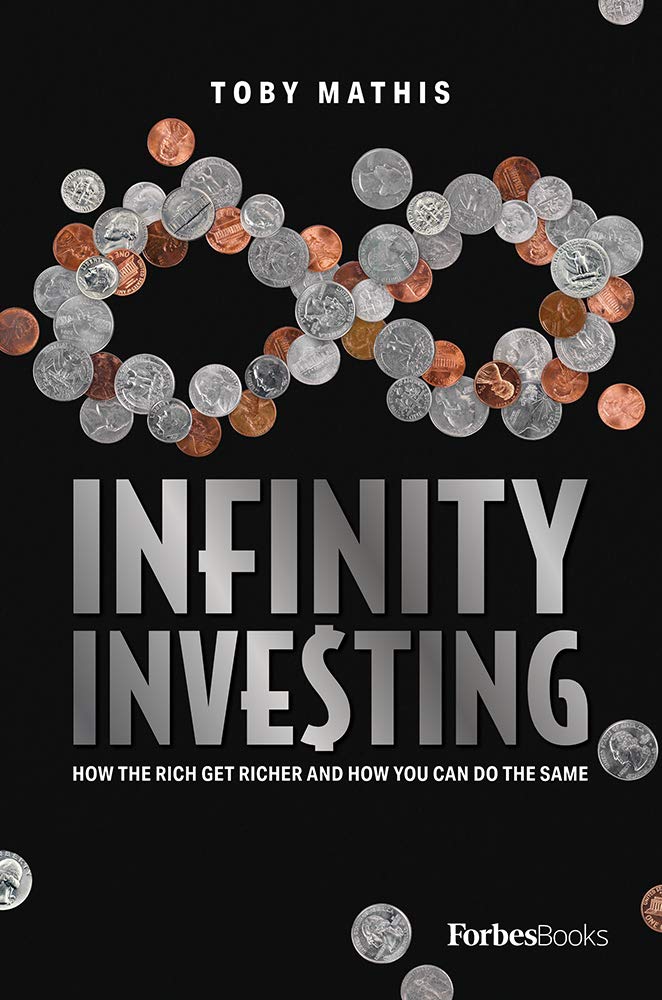
2. The Everything Guide to Investing in Your 20s and 30s by Joe Duarte
From cryptocurrency to initial public offerings of startup companies, Joe Duarte shows readers how to navigate today’s world of investing with a play-by-play guidebook dedicated to individuals who have likely just started their professional career.
With several decades of living ahead, it’s important to build a strong foundation that won’t be shaken by rising interest rates, tech bubble pops, and changing political winds. Beginning your investing journey just out of college is important because the money contributed then will have the longest amount of time to grow with the power of compound interest.
That said, Joe Duarte wrote The Everything Guide to help millennials set aside passive speculation and take an active and interested approach to growing their money. Investment approaches need to change over time, and what someone in the later phase of their working life needs to do in regards to money management is not the same as what someone in their 20s or 30s needs to do. Duarte offers some timely advice for every budding investor who grabs a copy of his book.
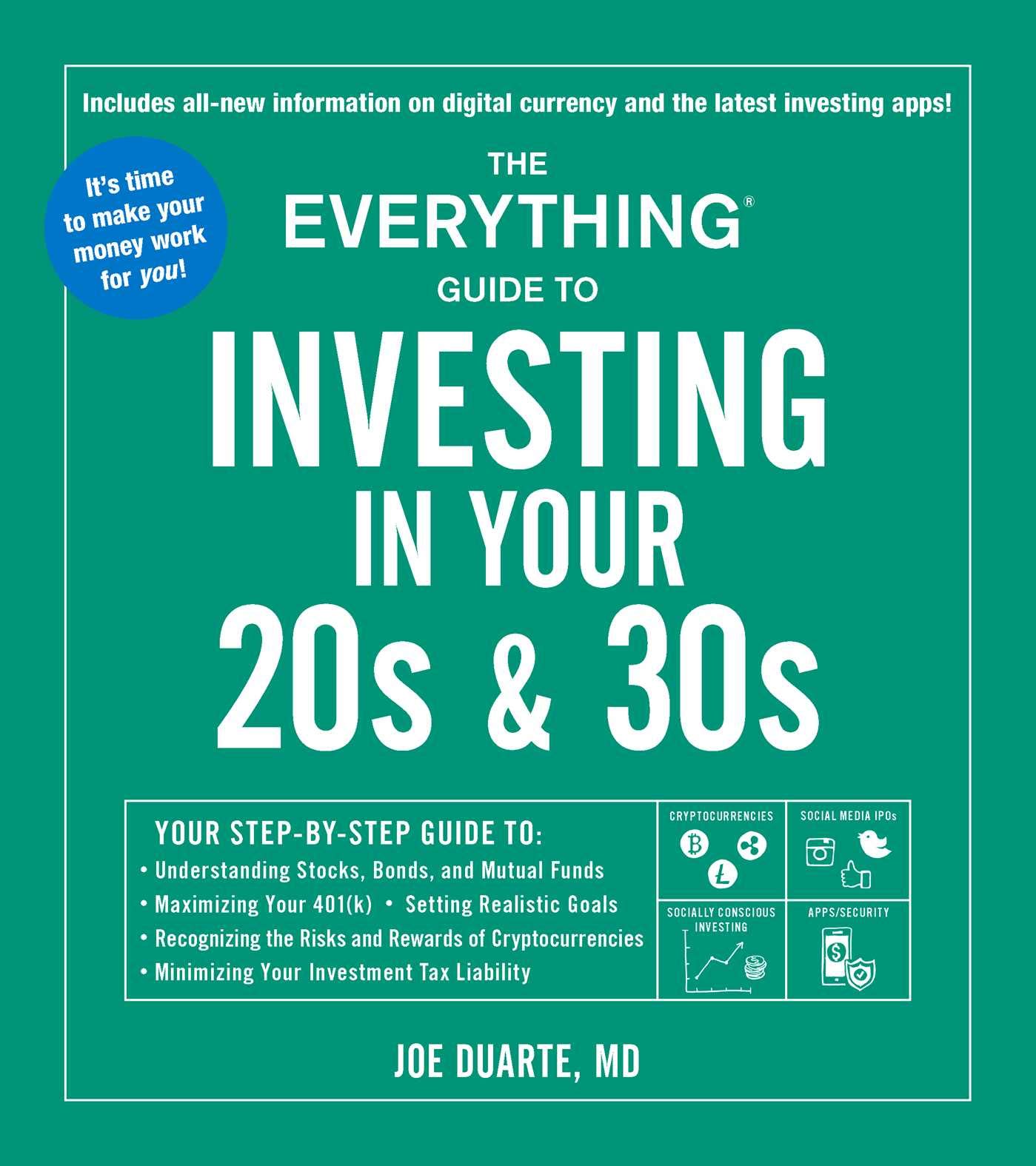
3. The Intelligent Investor by Benjamin Graham
One of Warren Buffett’s favorite books happens to be The Intelligent Investor, which lays out the strategy of dollar cost averaging. Dollar cost averaging means putting the same amount of money into the stock market on a consistent and committed basis, sort of like delegating a percentage of your paycheck.
Though the market goes up and down, over time, stock prices go up, and your consistent contributions average out to yield a highly valuable portfolio. Readers looking to benefit from Graham’s timeless wisdom should elect to purchase a more recent edition of the book that has short digestible summaries at the end of every chapter, as the book itself often strays into lengthy (albeit interesting) tangents on economics and money related philosophy, which could obscure the message for some readers.
That said, every budding investor should take the opportunity to read this foundational investing book and cement its principles in their mind.
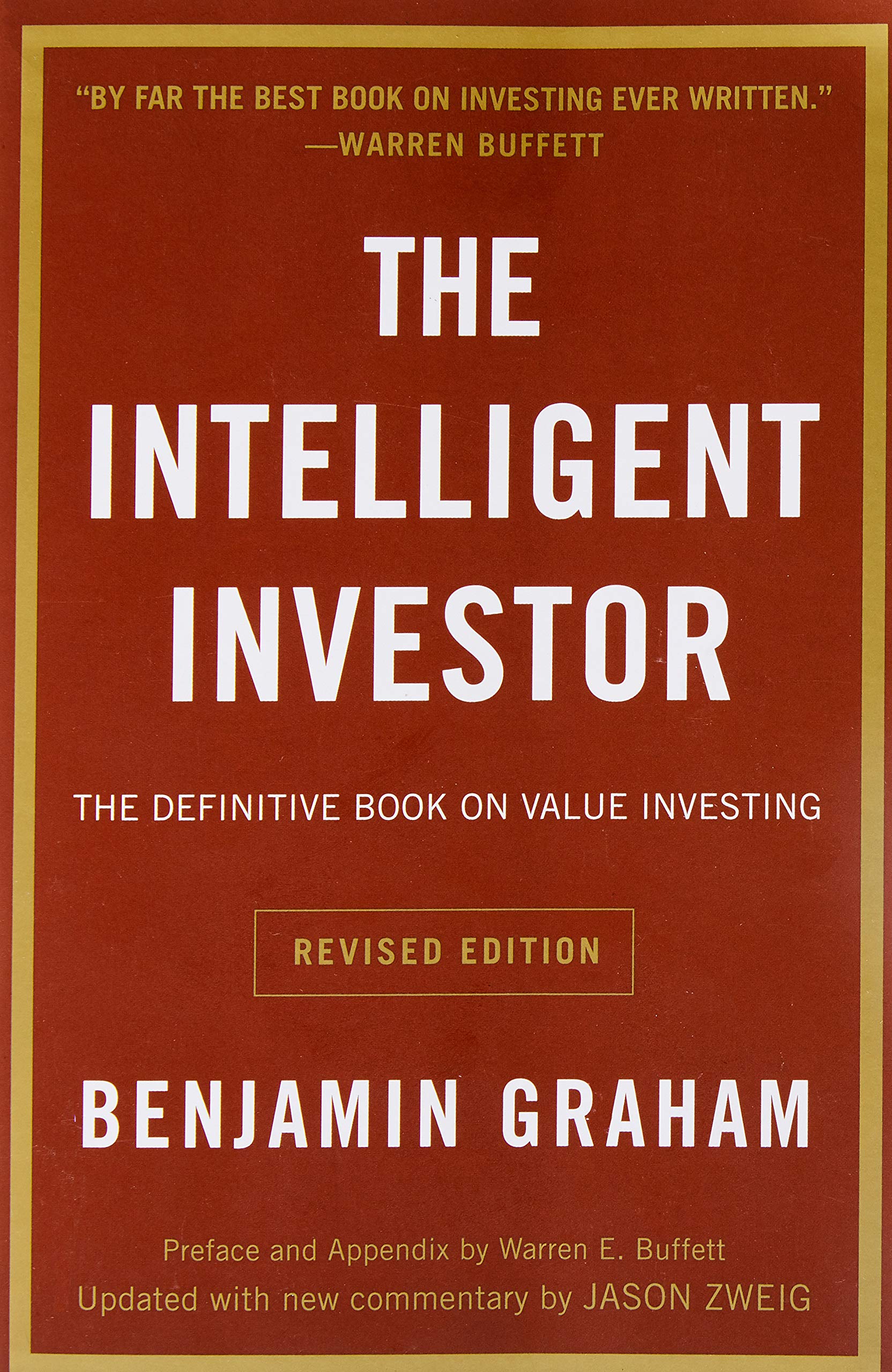
4. Broke Millennial Takes on Investing by Erin Lowry
One of the biggest problems for millennials in terms of the stock market or investing is that they don’t feel like they have any money to invest, or any knowledge on how to do it. Indeed, it’s true that the costs of education have risen dramatically over the last few years, and salaries have stagnated.
But even so, Erin Lowry will show that you don’t need to be a millionaire to become a millionaire. You just have to live within your means and leverage some of the great apps and services available today. Apps like Robinhood allow investors to purchase fractional shares of stock so that investing for the future can exist within their budget.
Lowry also helps readers learn how to navigate the ongoing, ever-increasing avalanche of information about investing that constitutes internet stock market advice.
If you feel like just another broke millennial saddled with debt, Broke Millennial Takes on Investing might just be the book that helps you get to a place of financial independence.
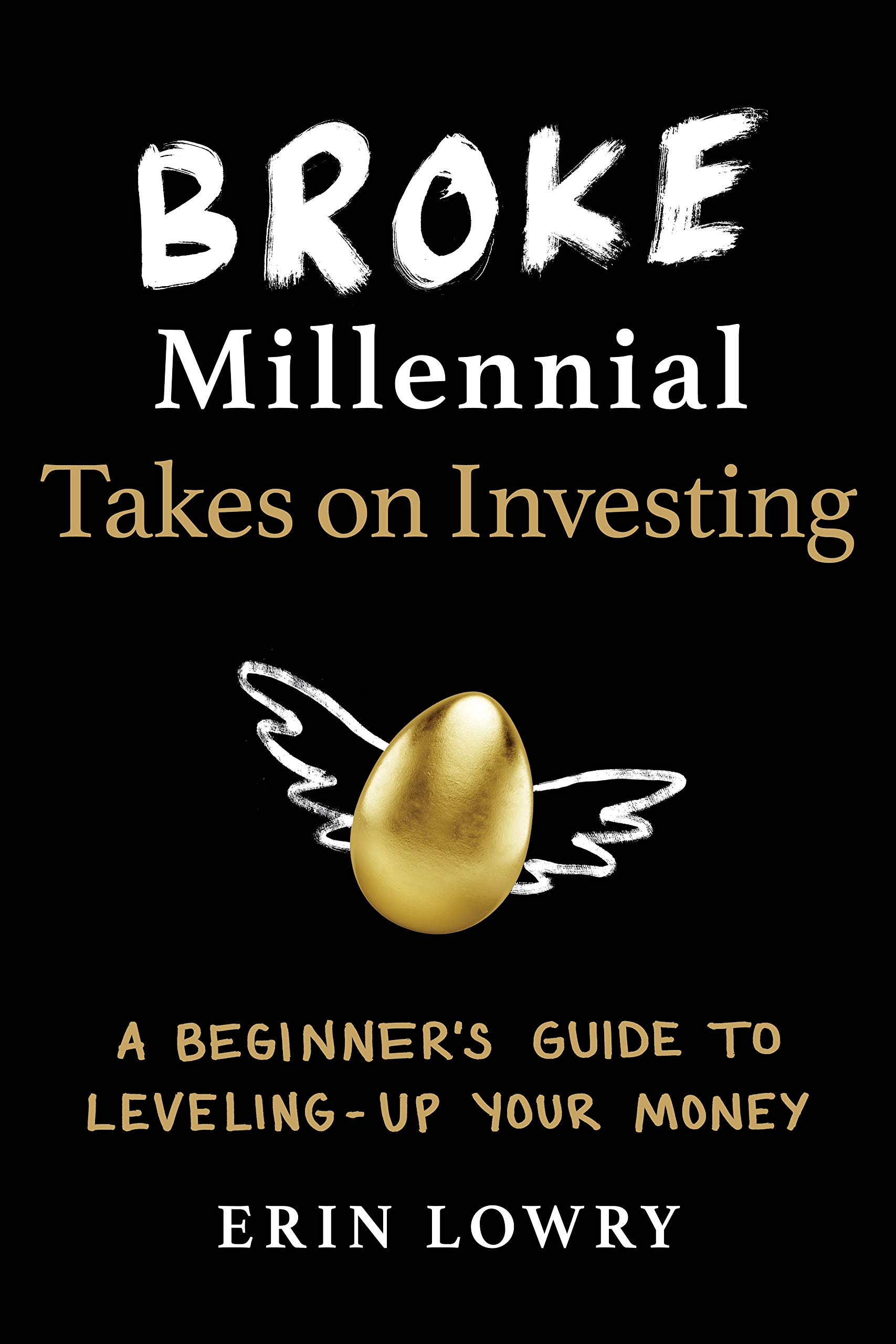
5. Everyday Millionaires by Chris Hogan
Chris Hogan is a well-known personal finance guru working within the Dave Ramsey school of thought on money management.
Chris Hogan’s book Everyday Millionaires will blow apart the too-often believed stereotype that rich people inherited their money or that they somehow made a windfall from a get-rich-quick scheme.
To the contrary, Everyday Millionaires will show you that the vast majority of Americans with a net worth more than one million dollars actually reached that place just by simply allocating part of their company paycheck toward a retirement fund or mutual fund, perhaps even taking advantage of a company matching policy to double their contribution.
It was Albert Einstein who once said compound interest is the eighth wonder of the world, and Hogan shows readers just how easy it is to reach millionaire status by being consistent and dedicated with saving and letting a retirement portfolio go to work for you.
While devoid of exciting rags-to-riches narratives, Hogan’s book is empowering in the sense that readers will see just how easy it is to see success investing, and that being a millionaire is certainly within the reach of everyday people.
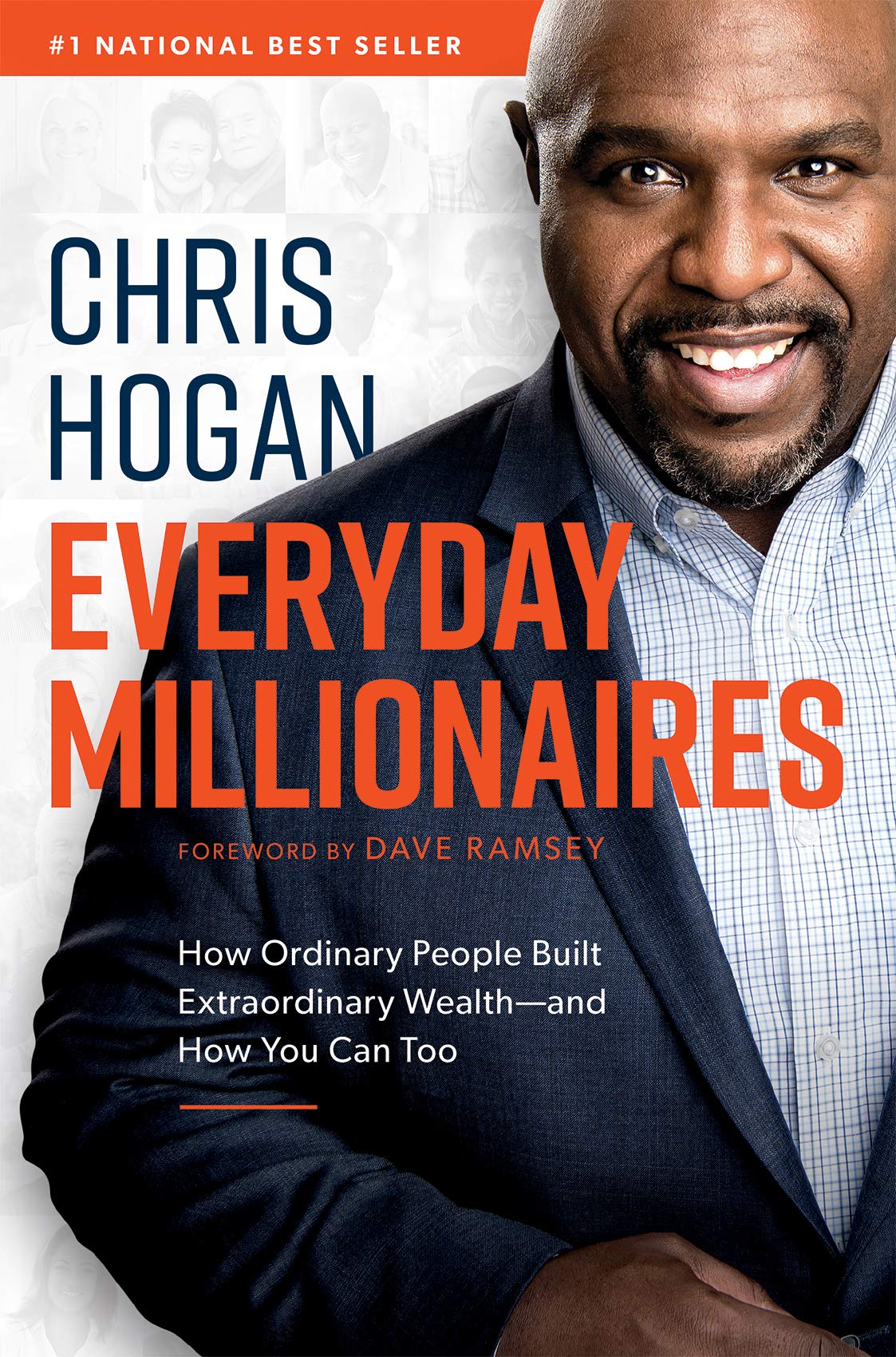
6. The Richest Man in Babylon by George Clason
The Richest Man in Babylon is not necessarily a book about the stock market.
It is, however, a book about some of investing’s most foundational principles: consistency and dedication. The Richest Man in Babylon is set up as a series of ancient parables given by Arkad, who was once a poor Babylonian who eventually became wealthy.
So far, the fictional Arkad has shared advice like The Five Laws of Gold with more than 2 million readers. The book is simple and straightforward, and it’s easy to see why it’s consistently been a personal finance bestseller for more than 90 years.
In the main, Arkad becomes wealthy by living within his means, consistently saving 10 percent of his income, investing in something he knows/that is secure, and building up a portfolio of assets, such as real estate and shares of business ownership.
Though Arkad lived in a world of camel caravans and hanging gardens, his advice is timelessly applicable for today’s generation as well. Key among his points is the idea of paying yourself first—for example, allocating five percent of your paycheck to your IRS or 401(k) before the rest of it even hits your bank account.
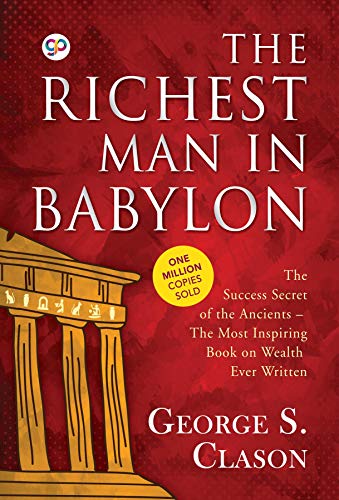
7. The Little Book of Common Sense Investing by John C. Bogle
Warren Buffett has had many positive things to say about author John C. Bogle, describing him as the financial advisor that helped millions of Americans get a better return on their money.
Bogle’s strategy is all about investing in low-cost mutual funds that are built on an index of large established companies, like the S&P 500. This type of portfolio is broad and diversified over several industries, avoiding fads and marketing hype.
In the long run, these companies tend to do very well, and even when times are lean in the market, they fare better than their competition. The low-cost mutual fund is a great alternative to a mutual fund actively managed by money managers and requiring a higher fee for participation.
Over time, Bogle argues, this sort of auto-pilot method yields much greater returns. Though his strategy is devoid of the excitement of picking and choosing your own stocks, numbers do not lie, and The Little Book of Common Sense Investing presents a convincing case for investing in mutual funds long term.
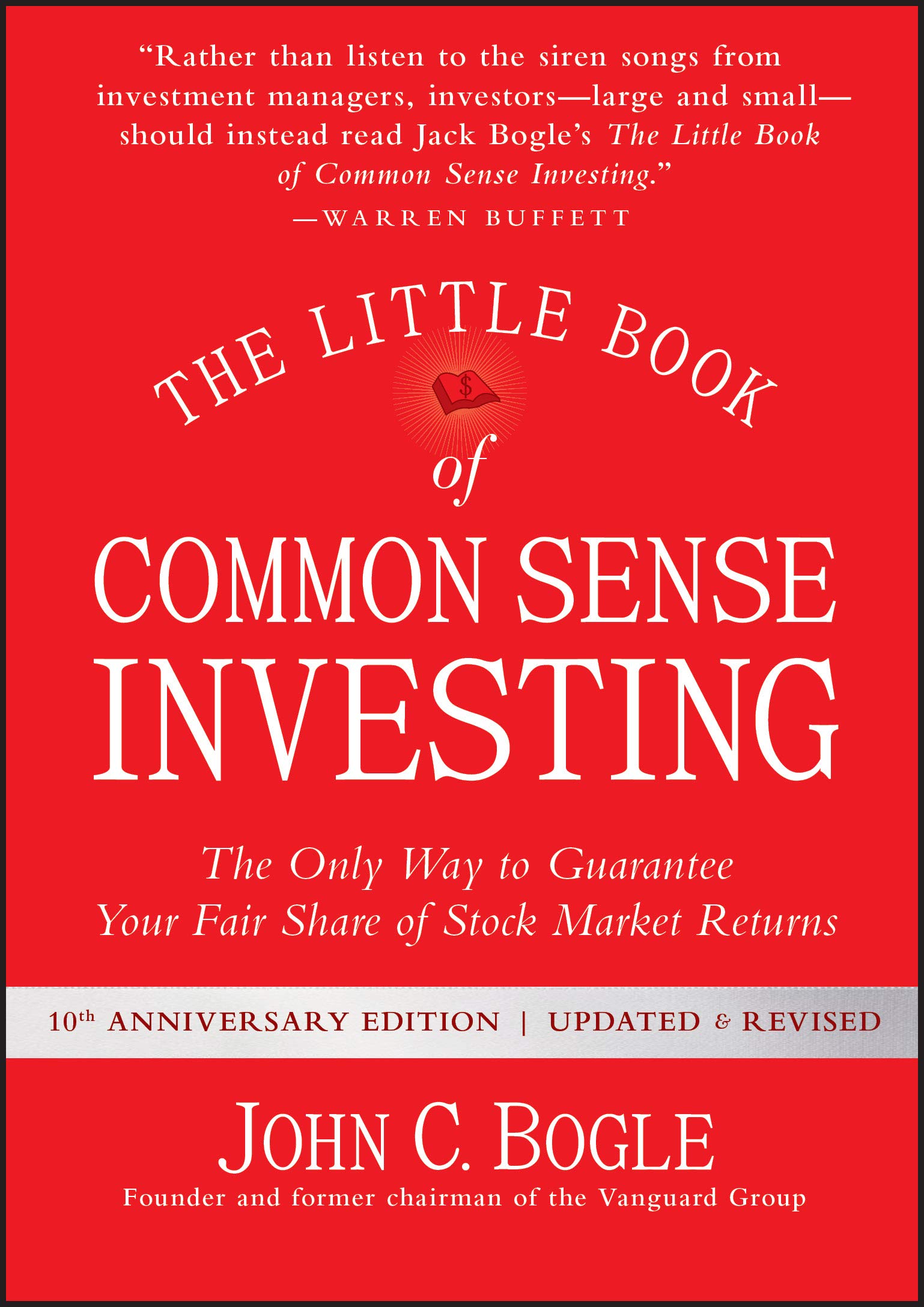
8. Rich Dad, Poor Dad
When it comes to building wealth, there is certainly debate around stocks or real estate being the better option.
But why not both? Why not any asset that puts money into your pocket? Robert Kiyosaki teaches readers all about what sets the rich apart from the middle class (and poor). Basically, it’s that rich people put their money to work, for them, while other people work for money.
Rich people invest in cash-producing assets (like stocks and real estate) while others invest in liabilities—like a car that loses value, or a property they live in that they think is an asset, but is actually not. That’s because (as Kiyosaki explains succinctly) assets put money in your pocket, while liabilities take money out. It’s really just that simple.
While Rich Dad, Poor Dad, is not necessarily a book about the stock market, it is a book that will change your mindset and cement your belief in the power of investing.
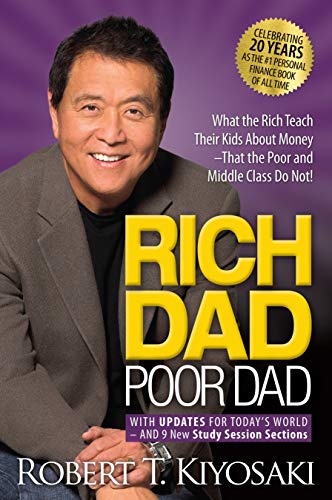
9. I Will Teach You to Be Rich by Ramit Sethi
Successful investing in financial markets is a topic that baffles most every young investor or beginning investor.
Wouldn’t it be nice if there were a no-frills investment book that could teach you about stock investing, asset allocation, and other investment decisions? That investing book might just be I Will Teach You to Be Rich. Author Ramit Sethi lays out simple long-term advice on everything from how to eliminate student debt (and other debts), spend less, save more, and launching an automated investment strategy.
These tools will provide you with the financial freedom to pay for important life milestones, like buying a home, planning a wedding, or sending kids off to college. This investing book is not about technical analysis of how to build an investment portfolio, but more about offering simple and easy to implement investing advice that can help you move through life without being financially punished by some of its more expensive milestones.
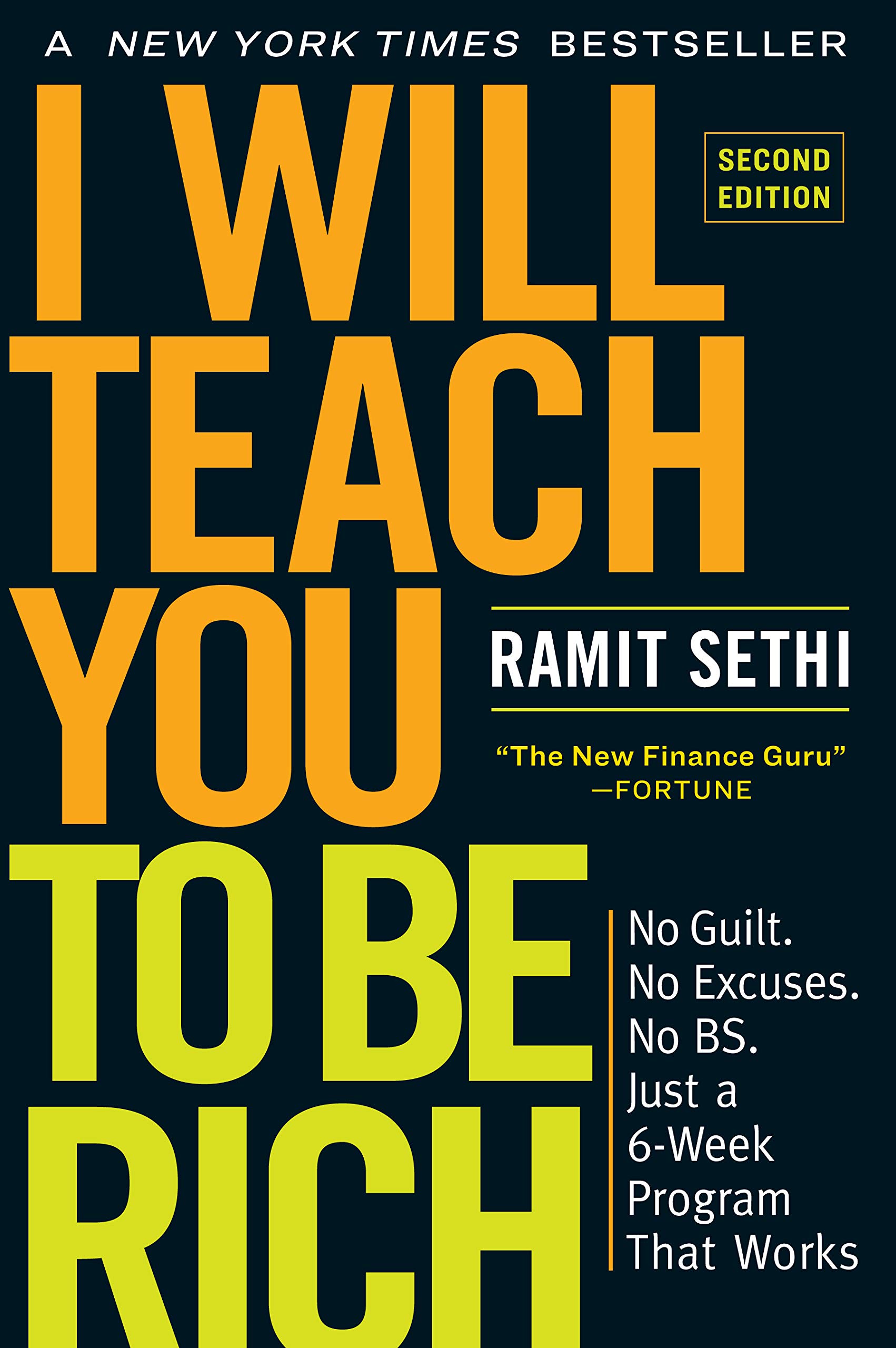
10. Financial Freedom with Real Estate Investing by Michael Blank
Most of the investing books we’ve covered for budding investors have been about the stock market. Indeed, for the average investor, the stock market is the easiest way to go in terms of building long term wealth.
But as you probably know, an individual investor can also find a great ongoing investment opportunity with real estate. Real estate investing might seem out of reach—after all, a home is the biggest purchase most people make in their lifetime.
But Michael Blank, in his real estate investing book Financial Freedom, will share with you the easy-to-implement secrets of how to raise the money you need, how to look for deals, and how to seal the deals you need, even if you have no experience and no cash. It seems too good to be true, but Blank knows what he’s talking about and has helped numerous budding real estate investors turn real estate investing into real cash flow within just three to five years.
His modus operandi of reaching uncommon profits involves apartment buildings; not flipping homes or single family rentals. If you’re a beginning investor, you’ll see how easy it is to get there just by reading his book.
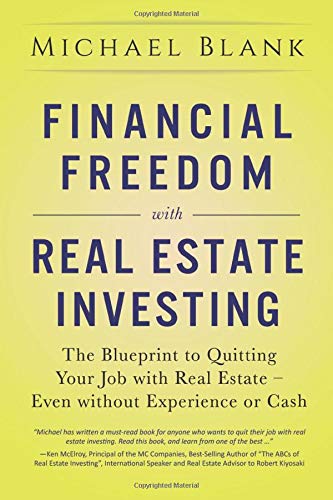
11. Rental Property Investing by Brandon Turner
Brandon Turner is associated with the online investment community BiggerPockets, and this is one of their top-selling investment books. As its subtitle suggests, Turner will show readers how to create wealth through long-term buying and holding of rental properties, doing so through more than 400 pages of in-depth advice.
Many successful investors will tell you that looking back, they wish they had someone to tell them what to do and what not to do. That’s exactly what Turner wants to provide with Rental Property Investing. Its pages are filled with real-world examples from several successful real estate investors who will impart their wisdom and share actionable ideas about what to embrace and what to avoid.
This real estate investing book also includes ideas for financing properties and ideas on how to avoid losing your hard-earned capital to the tax man. If Turner’s style speaks to you, then you should also check out the other associated books in this particular series, Investing in Real Estate with No Money Down and Managing Rental Properties.
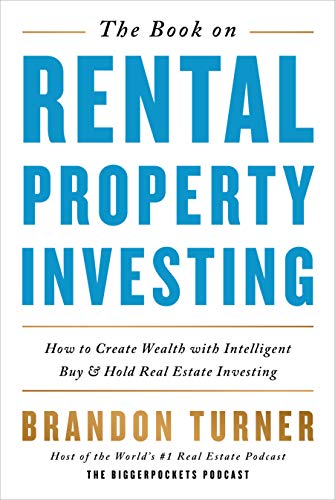
Investing Books are Just the Beginning of Your Investing Education
These are just a few of the great investing books currently on the market—whether that investing involves the stock market, business ownership, or real estate. As many of the books will teach you, investing is a long-term game that requires dedication and consistency.
Just take a look at tools like the Infinity Investing Net Worth Calculator and you’ll see how awesomely powerful consistency and dedication (coupled with the power of compound interest) are in terms of getting you to a place of wealth and financial independence.
It’s important to keep in mind that reading and learning is just part of the bigger picture when it comes to successful investing. In order to see any returns from your hard work, you will have to actually take some concrete steps and act.
Sometimes a budding investor just starting their investing journey will get into reading and learning and become stuck in a sort of decision paralysis about what to do. Just remember that moving and doing is a big part of success.
Sometimes an investor will fail and make mistakes, but that’s just part of the process. They pick themselves up, learn from what went wrong, and keep moving. The good news is that many of these books will teach you how to avoid making mistakes that could take you too far out of the game. In the meantime, don’t be afraid to jump in. If you wait until you know everything you need to know, you’ll never get started.
As you read these books, you’ll want to continue exploring and learning about investing. Join Infinity Investing! It’s a great way to connect with like-minded individuals and gain access to powerful investment information and software tools.
Infinity Investing Featured Event
In this FREE event you’ll discover how the top 1% use little-known “compounders” to grow & protect their reserves. Our Infinity team of experts show you how to be the best possible steward of your finances and how to make your money and investments work for you instead of you working for them. Regardless of your financial situation today, you’ll have a road map to get to where you want to be.

